Kenny Esson found out the hard way to stay away from baby gulls.
The 78-year-old was trying to help a stranded chick get out of his garden on Bon-Accord Street in Aberdeen.
But after carefully collecting the fluffy grey bird, and popping it over the wall, he was struck by a sudden thud on the back of his head – and felt blood streaming down his face.
Kenny had been attacked by a protective parent, with gulls notoriously aggressive when it comes to defending their young from any perceived threat.
‘They have sharp beaks’
I meet Kenny reclining in his garden in the days after the bloody assault.
The retired bus driver, originally from Tarland, has his granddaughter’s staffie by his side on that occasion.
He says it keeps the seagulls at bay.
Pointing upwards, he tells me that there are nests on the roofs of two neighbouring properties – as well as at the nearby Ferryhill Primary School.
He explained that he took pity on the baby seagull after it “crash landed” in his yard and struggled to fly back over his wall…
Kenny added: “I tried to help it out of the gate, and quickly then managed to put it over the wall.
“But I didn’t see the parent coming, and the next thing this big seagull came in behind me.
“They have sharp beaks.”
Protecting a baby can bring out the worst in seagulls
Kenny says that the behaviour of seagulls in the area is getting worse, perhaps exacerbated by locals feeding them.
He adds: “It’s not the first time I’ve been bumped, but it’s the first time it’s drawn blood.”
At this time of year, we are accustomed to seeing baby seagulls taking unsteady steps along our streets as they wait for the day they can take flight.
And occasionally, while roaming an urban environment fraught with danger, it can appear they have become injured.
What should we do if we become concerned for a baby seagull?
Baby seagulls leave their nests after a few days, and move to a “safe” spot nearby – which can often be on our rooftops.
But the RSPB advises that it’s “common” to find young gulls that have fallen to the ground.
And, unless they appear hurt, it’s best to leave them be.
Though they may look helpless, their parents will continue feeding them until they are five or six weeks old.
If it is in danger, it can be moved a short distance to a safer place, but be wary that the parents may try to protect the chick and swoop at you.
Injured gulls are best reported to welfare organisations such as the RSPCA, SSPCA or taken to a wildlife hospital or a local vet.
Have you ever been swooped at for getting too close to a baby seagull? Let us know in our comments section below
Wounded pensioner says gulls must be controlled
Kenny, who sent the Press and Journal a photograph showing his injury just after it happened, thinks more should be done to control gulls.
Growing up in the countryside, he takes an unsentimental view on how to tackle the problem.
He said: “When herring gulls would land at Tarland we shot them because they would attack the lambs.
“That’s what needs to happen now.
“These are no longer seagulls, they don’t even know where the sea is.”
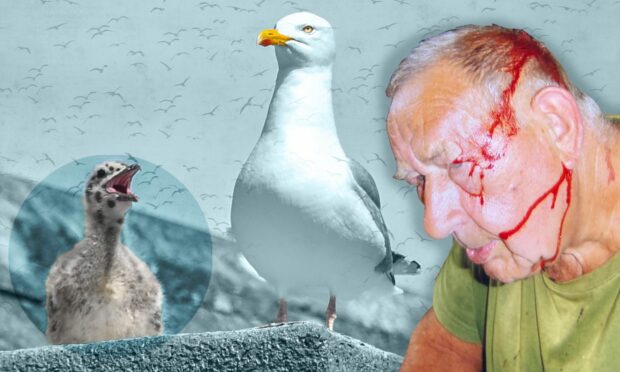
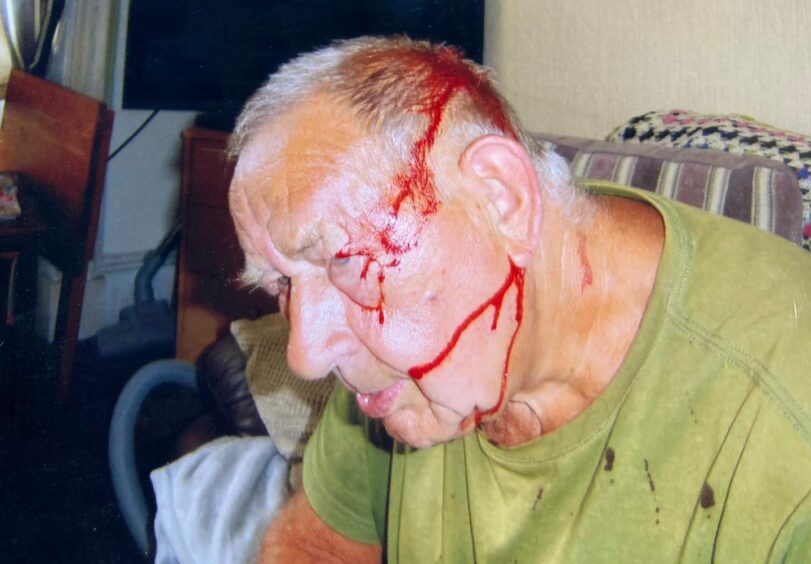
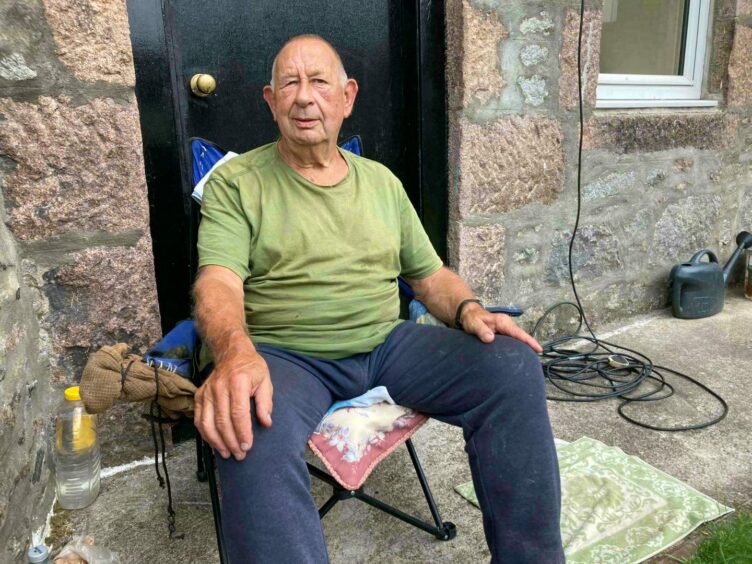
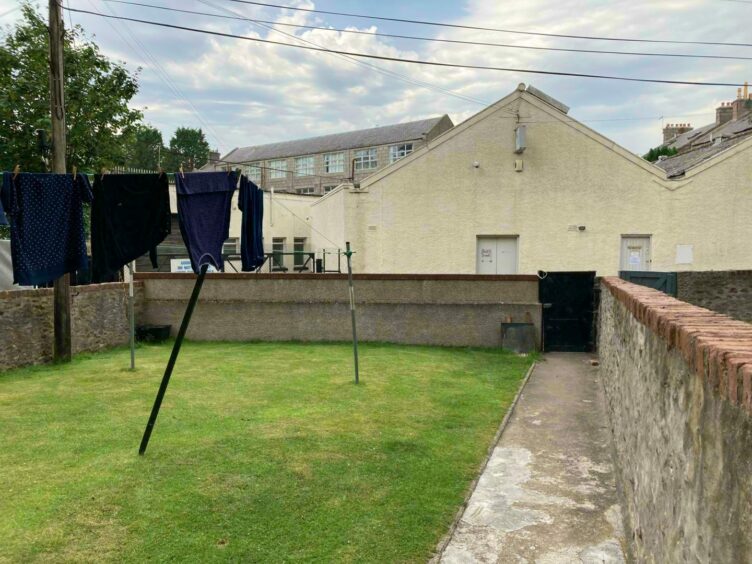
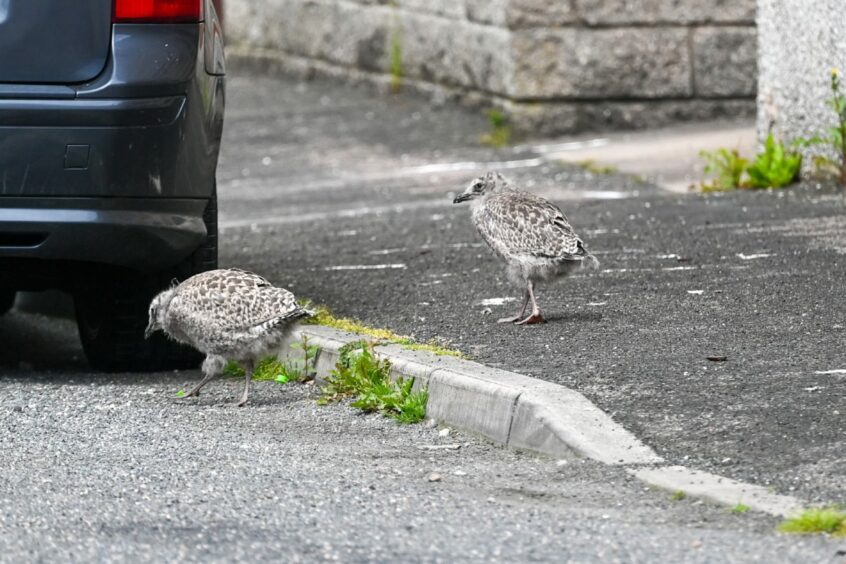
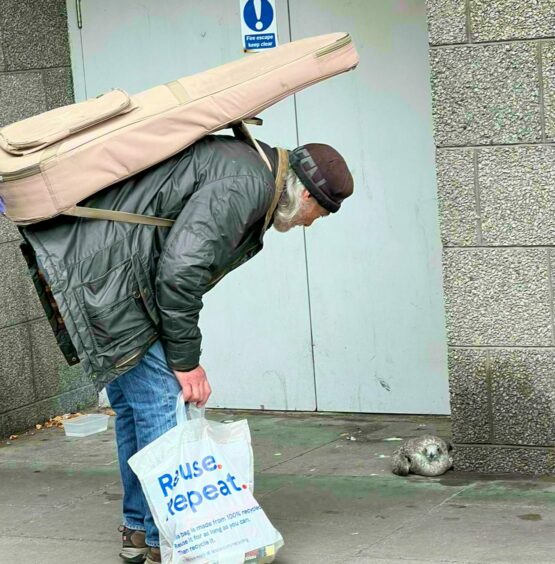
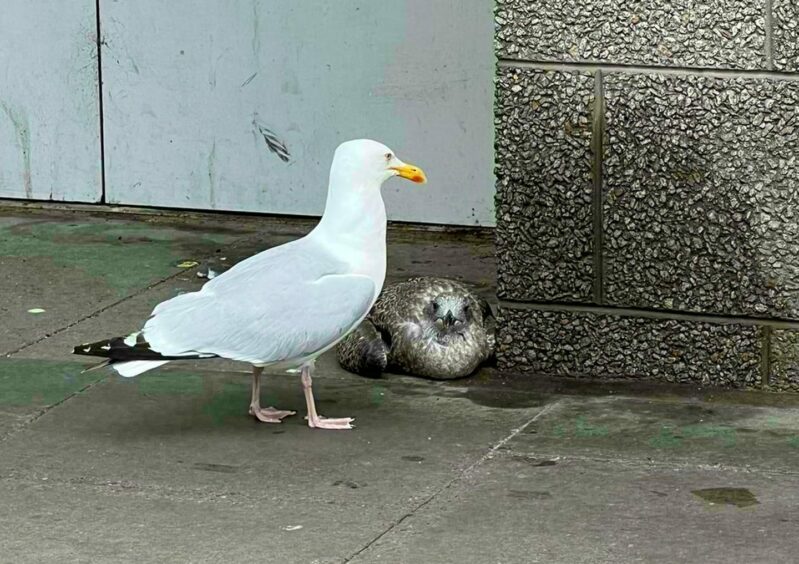
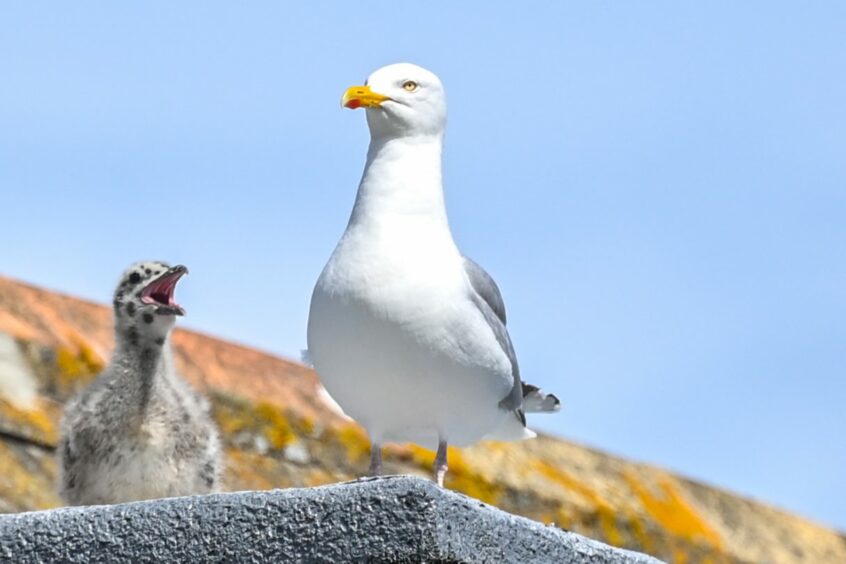
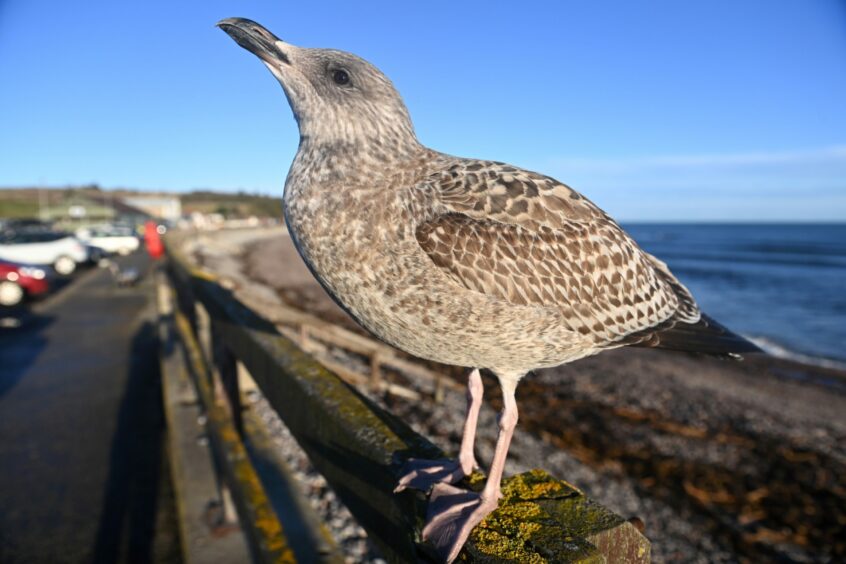
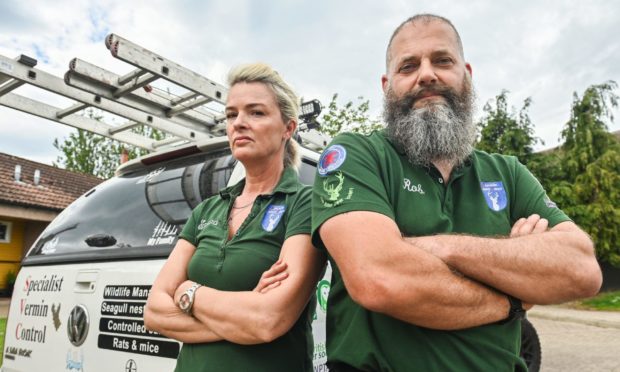
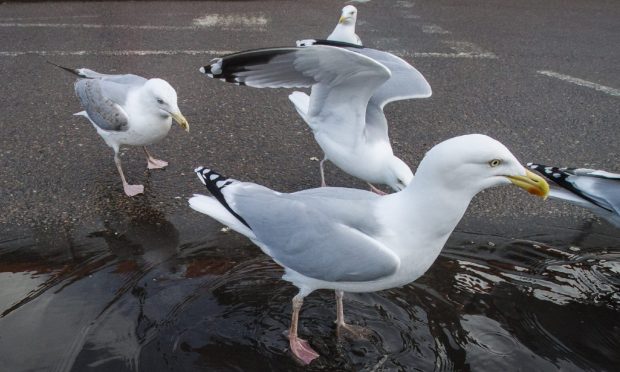
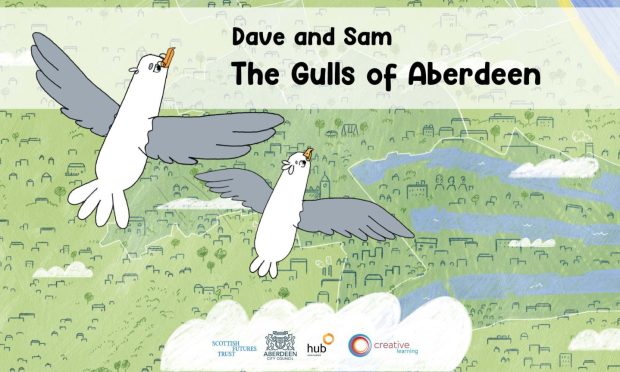
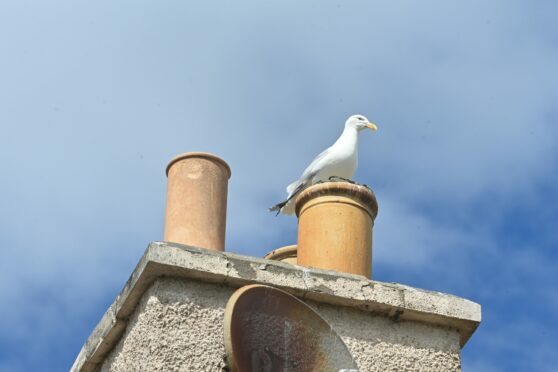
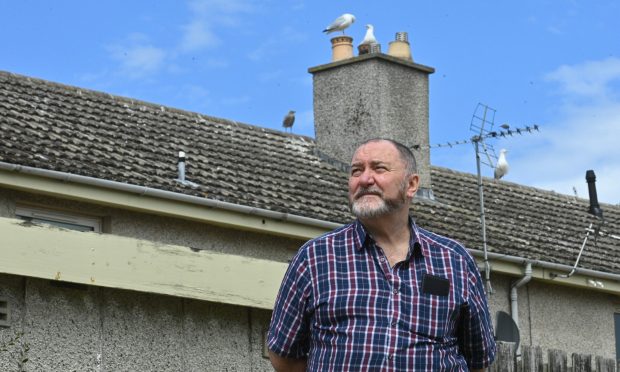
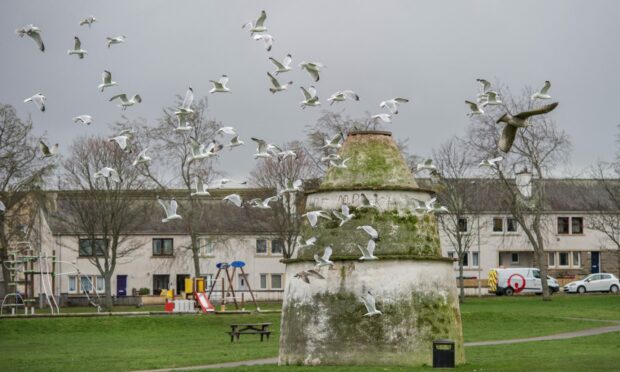
Conversation